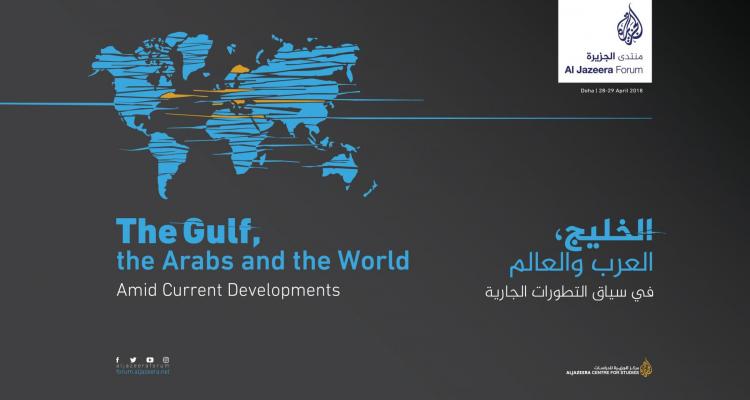
Since 2010, a number of Arab countries have witnessed growing popular movements calling for change. These movements succeeded during their initial stages in toppling a number of regimes. However, they eventually turned into civil wars in countries such as Syria, Iraq, Libya and Yemen. However, even in countries where popular revolutions succeeded in effecting quick political change, internal divisions and regional interventions caused old regime influences and former ruling classes to revolt against the democratic transformation process. Therefore, hopes of freedom and democracy in the Arab region soon turned into a new nightmare of oppression, complete state failure, polarisation and loss of sovereignty, territorial integrity and the unity of the people.
The Arab revolution seemed in the beginning to be the result of failure to achieve economic development and establish governing systems that respect the will and dignity of the people. However, it soon appeared that the Arab explosion was more entrenched than the internal crisis. It was a reflection of the accelerated collapse of the regional system as a whole. This was clear to the counter-revolutionary forces, which have sought to restore not only former old regimes, but also the previous regional system since 2013.
There is no doubt that the Gulf Cooperation Council states were an exception in the Arab world. While instability was prevalent in most of the region, they maintained their stability and began to play a larger role regionally due to the power vacuum. However, the Gulf states were unable to agree on a unified position towards the Arab revolutions. While Qatar supported the path of democratic transformation, other Gulf States aligned with the counter-revolutionary camp, and even worked on taking command of it. However, the counter-revolution states failed to notice the size of economic deterioration and socio-political divisions that resulted from the stumbling of the revolutions and change movements in region as well as the extent of the collapse of the regional system inherited from the inter-war period. In their vigorous pursuit to reverse the clock, the counter-revolutionary powers soon pushed the Gulf countries into division, wreckage and ineffectiveness. Therefore, approximately a decade after the winds of revolution and change blew on the region, not a single Arab institution is still able to operate with any influence.
2017 surely witnessed a number of important developments. These included the defeat of the Islamic State (IS) and withdrawal from areas it once controlled in Iraq and Syria, the rescue of Iraq with great difficulty from the Kurdish referendum crisis and the declining levels of killing and destruction in the Syrian civil war. However, 2017 also saw the widening of the scope of foreign intervention in Arab affairs and the transformation of the Arab region into a regional and international area of conflict. Also, the outbreak of the Gulf crisis added even more stress to the already stressed Arab atmosphere. With the Trump administration’s decision on Jerusalem and the differing positions of Arab and Islamic countries towards it, the situation in the east has become even more complicated.
Throughout these developments, in their Gulf, Arab or international dimensions, the media has played an active and effective role in explaining and enlightening on one hand and in justifying, inciting and widening the scope of differences on the other. This applies to the media scene in all its forms, whether or traditional or new. Due to this vital connection between developments on the ground and the way they are shaped and transferred to audiences, the media has become an issue that cannot go without review to understand its relationship with the current changes, the various crises and centres of power involved in attempts to either resolve them or make them complicated further.
This year’s forum aims to exploring the various dimensions of the socio-political crisis in the Arab region and the greater Middle East, and the roles global powers have begun to play in these crises. Is there a relationship between the raging conflict over the future of the Arab region since 2010 and the Saudi-Emirati blockade on Qatar? What future can we anticipate for countries that lived through war and division during the past few years such as Iraq, Syria, Yemen and Libya? Has the Palestinian cause returned to its traditional position as a determinant of the region’s policies and relations? What do the United States, Russia, China and the main European countries seek to achieve in the east? What effects do current Turkish and Iranian policies have on the stability and future of the region and the relations between its peoples? What can we make of the role of the media and its link to the developments taking place in the region and beyond?

